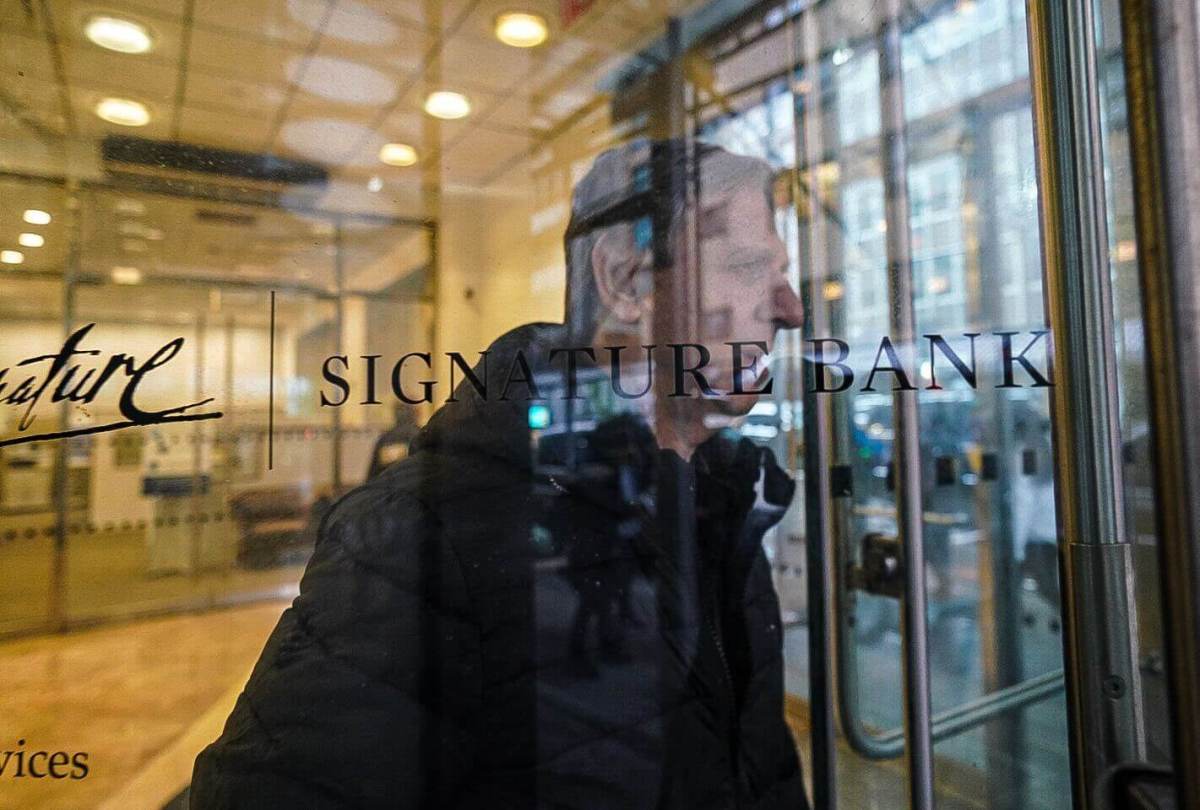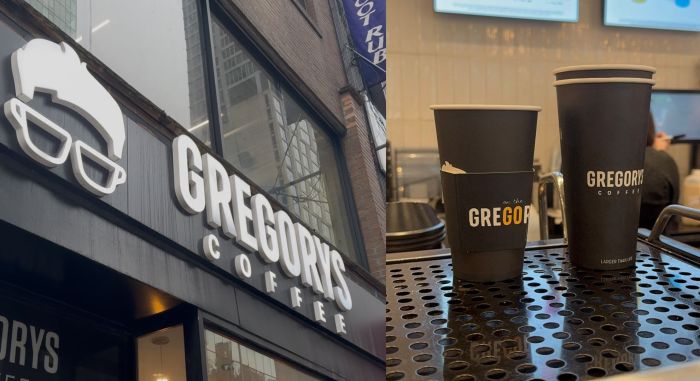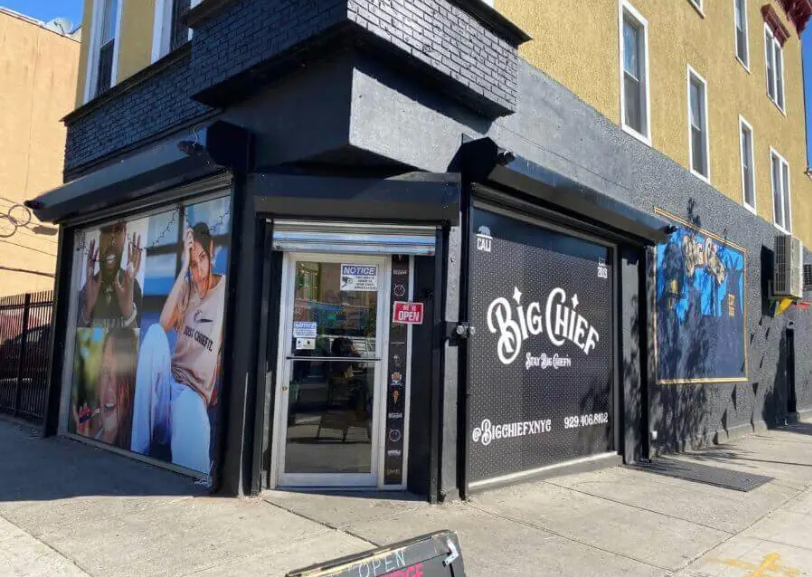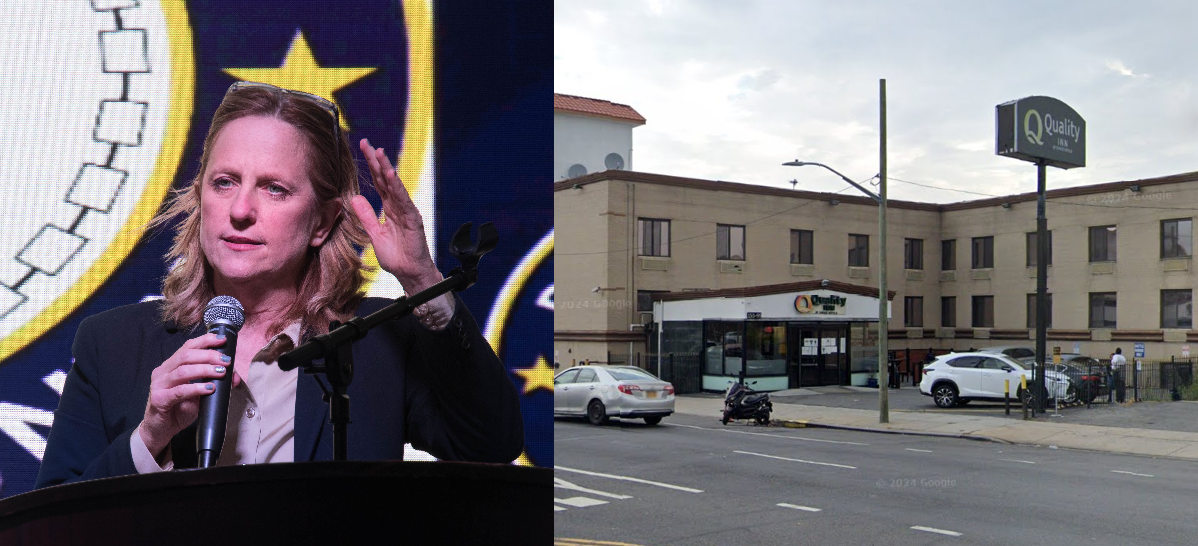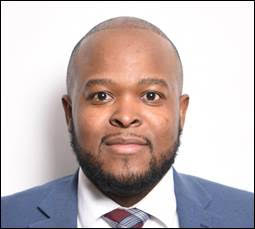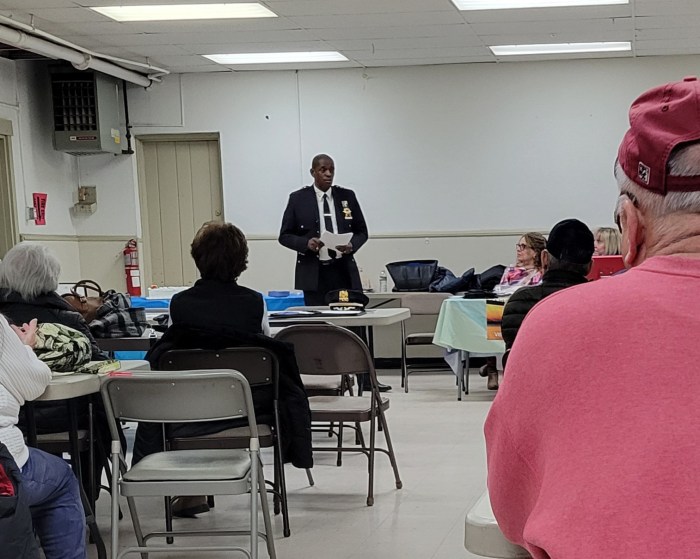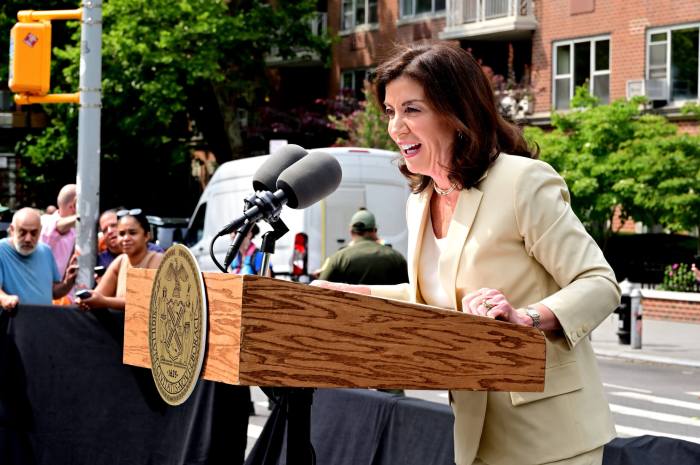Customers at Signature Bank can rest assured that their deposits are safe following the bank’s spectacular collapse and abrupt federal takeover, Governor Kathy Hochul said Monday, but some depositors remained uneasy about the whole situation and say the bank is not being forthright with them.
The Federal Deposit Insurance Corporation (FDIC) took over Signature Bank’s operations on Sunday night after state regulators seized it, seeking to dam a bank run and assure depositors at all banks that their money is safe. Though the FDIC typically only insures deposits up to $250,000, the feds will guarantee deposits of all sizes at Signature and at Silicon Valley Bank, the Treasury and Federal Reserve announced on Sunday.
The deposits will be guaranteed by fees levied on banks by the FDIC for insurance services, meaning no taxpayer dollars will go towards rescuing the banks, Hochul and the feds said. Shareholders and debt holders will not be rescued; existing management has been canned, and the FDIC will soon search for a new owner.
“Despite the jitters over the weekend, this is Monday,” Hochul said at a Monday morning press conference in Manhattan. “The banks are open, the assets are protected, the deposits are protected.”
Nevertheless, the news that Signature Bank had been rescued by the feds didn’t seem to reassure depositors there. If anything, it did the opposite.
Jane Willis, a Park Slope resident who has banked with Signature for 24 years, told amNewYork Metro outside the Downtown Brooklyn branch on Monday that she could not access her money.
“Everything I have, my mortgage, everything is on autopay with this bank. Everything,” Willis said. “Gas bills, everything. I don’t know how I’m supposed to manage that, it could get me into trouble and I’m being personally responsible. This is why people have so much lack of trust for the banking system.”
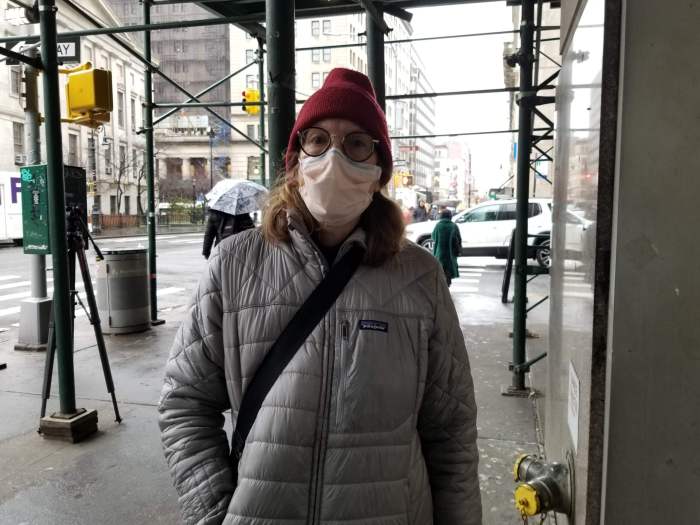
Willis and other customers said they only heard about the issues at Signature on the news, and never received any notification from the bank itself. After learning about the rescue on Twitter, Willis attempted to call her primary branch in New Rochelle, only to be told by the manager to stay patient. Displeased with the lack of urgency, she hiked up to the Downtown Brooklyn branch only to learn she could not access her money, even in person.
“I figured I would come in person because all my savings is here, all my money is here,” Willis said. “And I can’t seem to access it.”
In a statement, the bank’s new FDIC-installed CEO, Greg Carmichael, said clients’ deposits are not at risk.
“Because of the swift actions of the U.S. Treasury, Federal Reserve, and FDIC, our clients’ deposits are not at risk,” said Carmichael. “We value our clients, and we believe our single point of contact model will continue to deliver the best-in-class products and services they desire.”
The bank declined to comment on withdrawal issues faced by depositors and questions over communication with customers.
Signature’s collapse was not exactly foreseen: just four days ago, the bank put out a press release touting a “strong financial position.” The past week’s drama mainly revolved around California’s Silicon Valley Bank, which was rescued in a similar fashion on Sunday.
But in a sense, Signature’s client base was similar to Silicon Valley’s: the lion’s share of its deposits were corporate in nature, largely from law firms and real estate companies. And also like Silicon Valley, most of its deposits were over $250,000 and thus not FDIC-insured: the New York Times reported that $79 billion of the bank’s $88 billion in deposits were uninsured at the end of 2022.
As such, the run on Silicon Valley Bank spooked uninsured depositors at Signature, leading depositors to withdraw over $10 billion over the weekend, significantly weakening the bank’s financial position, CNBC reported.
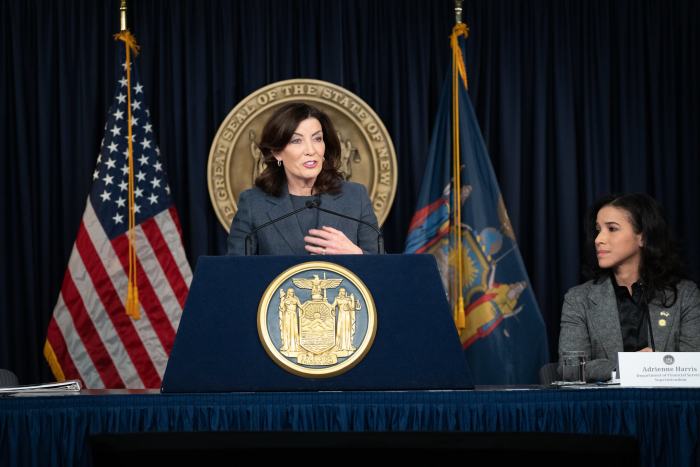
Fearing for the stability of the state’s banking system and depositors’ confidence, Hochul and the state’s Department of Financial Services swiftly took control of Signature and successfully lobbied the feds to guarantee all deposits, not just those under $250,000.
“When we saw what was happening at SVB, we immediately looked to monitor our banks and make sure there wasn’t gonna be contagion risk,” said Adrienne Harris, the state superintendent of DFS. “When we identified Signature as vulnerable due to the outflows we were seeing from them on Friday, we worked very quickly with the federal government to make sure they could be taken in under receivership, but under the circumstances that we knew depositors would be covered.”
When DFS was assured all depositors would be covered, the state seized the bank, Harris said.
As with the feds, Hochul and Harris resisted deeming the rescue as a “bailout,” arguing that existing FDIC funds raised from bank fees will cover the depositors, not taxpayer dollars.
Hochul and Harris also urged bank customers not to draw any conclusions early in the game, especially regarding Signature’s cryptocurrency holdings. Signature was notable among financial institutions for accepting crypto deposits, the Times reported, but Harris said that the bank had a wide range of depositors, including personal and small business accounts, and disputed that crypto had single-handedly tanked the bank’s fortunes.
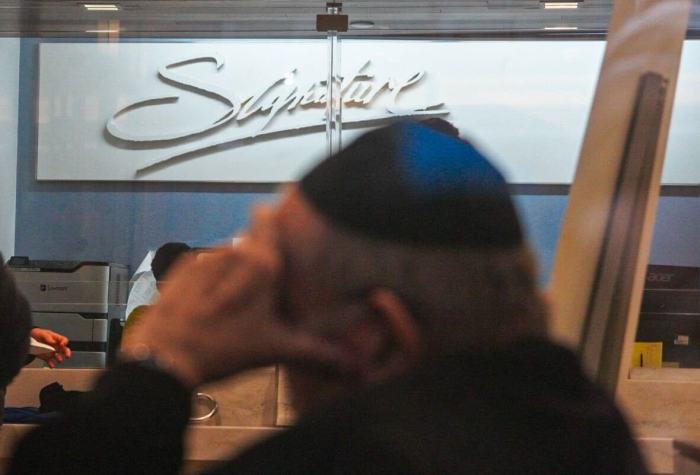
But Willis said that if she had known of Signature’s entanglement in the crypto game, she would have taken her money out of it much sooner.
“I was really surprised to hear that this small bank that I’d been banking with for about 24 years, that I really trusted completely, has a number of cryptocurrency accounts,” said Willis. “Had I known that, I would’ve withdrawn my money before this happened.”
The governor said that with the federal action, depositors at Signature and banks throughout the system should rest assured, and stated that she is unaware of any other regional New York bank in a similar financial predicament. But the swift collapse of Silicon Valley and Signature is, if anything, causing trust to dwindle in the banking system, at least among some customers.
Luis Leon of Hempstead told amNewYork Metro he came to the Downtown Brooklyn branch Monday morning after hearing about the collapse on the news, saying he too had heard bupkes from the bank itself and wanted to know the status of his account. Despite officials’ attempts to reassure customers, Leon said he had not only lost confidence in his bank, but in the system in general.
“We already know what happened with this bank,” said Leon. “But I don’t have confidence with the other banks, because I don’t know what will happen with other banks.”
Still, some customers remain hopeful.
“I believe [those customers] are not worried because we reassured them that their funds are safe, and everything we’ve heard suggests that that’s that’s going to be the case,” attorney Karen Streisfeld-Leitne told amNewYork metro. “The FDIC reports are pretty clear that even funds above the $250,000 limit are safe. In my case, all of my clients funds are less than the $250,000 limit.”
“I’m sure 100% the government is on top of it,” added customer Isaac Hager. “It’s not like 2008, it is more safe.”
Additional reporting by Dean Moses
Read more: Signature Bank Taken Over by NY State to Protect Assets



